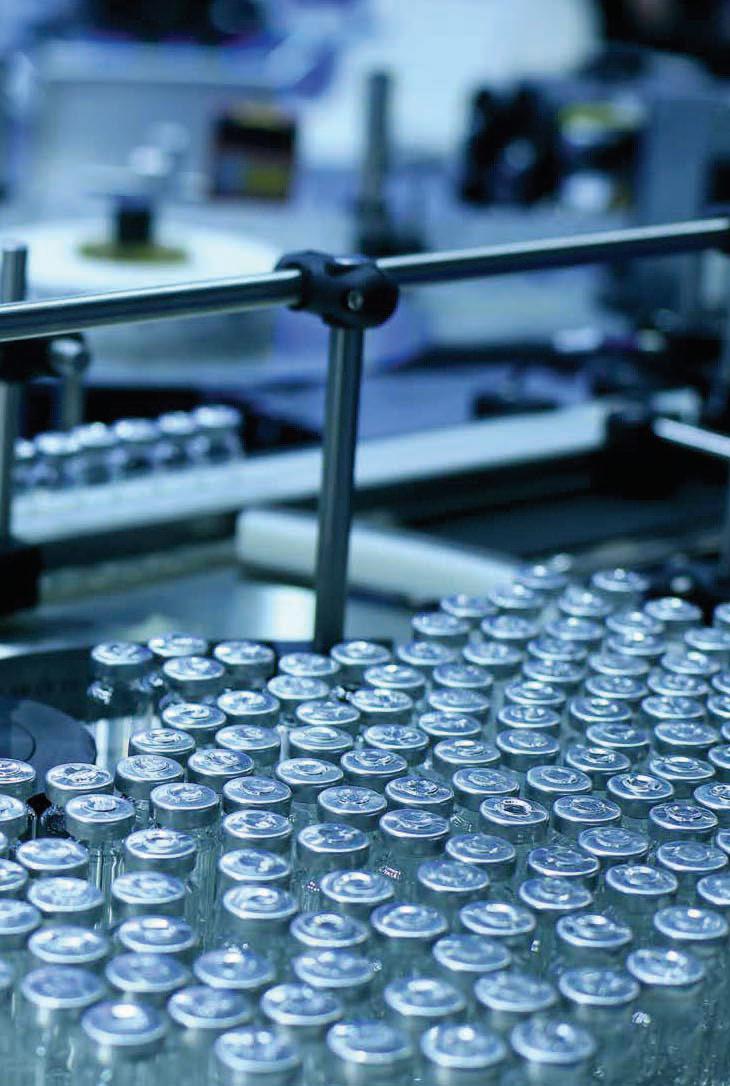Shaping the future of India's pharmaceutical operations
Express Pharma
|March 2025
The McKinsey & Company report analyses India's pharma landscape, highlighting disruptions, opportunities, and strategic priorities for companies aiming for accelerated and sustained global leadership
-

Over the past decade and more, India's pharmaceutical sector has become the world's largest supplier of generic medicines, with exports growing faster than the global average. The industry is at a tipping point, however: the Indian and global landscapes are shifting. While emerging trends could disrupt the current environment, they could also lead to the next horizon of opportunities for the industry. Against this backdrop, what will it take for the industry to achieve its full potential and unlock the next S-curve of performance as a global leader? To answer the question, this report looks at Indian pharma's journey so far, highlights the potential disruptions and opportunities likely ahead, and proposes strategic, thematic priorities for pharma companies as they pursue accelerated and sustained global leadership.
 The evolution of India's pharma operations: Triumphs and trials
The evolution of India's pharma operations: Triumphs and trialsWith a thrust on strong operations over the past decade, Indian pharma production has outpaced global growth by over two times, and Indian exports (at 9 per cent) have outpaced global growth (5 per cent).¹
Five factors have contributed to this performance:
1. Increased investments in infrastructure: India now has a manufacturing infrastructure of 752 Food and Drug Administration (FDA)-approved sites, 2,050 World Health Organization (WHO) Good Manufacturing Practice (GMP)-certified plants, and 286 European Directorate for the Quality of Medicines and Healthcare (EDQM)-approved plants as of 2024 (2).
2. Enhancing quality to meet global standards: Global compliance outcomes have improved over the past decade, and the industry achieved a step change in its quality excellence trajectory.
This story is from the March 2025 edition of Express Pharma.
Subscribe to Magzter GOLD to access thousands of curated premium stories, and 10,000+ magazines and newspapers.
Already a subscriber? Sign In
MORE STORIES FROM Express Pharma

Express Pharma
The invisible threat: Why packaging inks are the next major recall risk for pharma
Jatin Takkar, Head - Product Safety & Regulatory, Siegwerk India writes that packaging is emerging as a potential source of contamination due to unsafe ink chemistries. With global standards evolving, the industry must shift from reactive compliance to a proactive 'Safe by Design' approach that ensures packaging inks are as safe as the medicines they guard
4 mins
December 2025

Express Pharma
Beyond the machine: How intelligent packaging design elevates parenteral delivery
For sensitive parenteral products, the packaging is as critical as the drug itself. Uhlmann demonstrates how deep design competence turns packaging challenges into patient-centric solutions
2 mins
December 2025

Express Pharma
Ensuring Clean Room Integrity with Prime Clean Reset High-Speed Doors: Minimizing Air Permeability and Leakages
High-speed doors for clean rooms are specialized industrial doors essential for maintaining controlled environments.
3 mins
December 2025
Express Pharma
JULABO introduces Green Edition Refrigerated Circulators using natural refrigerants for sustainable lab cooling
JULABO launches its Green Edition range of refrigerated circulators designed to support laboratories in reducing carbon emissions, improving energy efficiency, and aligning with global environmental regulations
2 mins
December 2025
Express Pharma
Flexotherm Heating Tapes & Cords
Tempo's Flexotherm heating tapes and cords provide a safe, flexible, and efficient solution for maintaining solvent temperature across a wide range of industrial processes
1 mins
December 2025

Express Pharma
PRUV® -The original Sodium Stearyl Fumarate
JRS Pharma's PRUV® is the original sodium stearyl fumarate (SSF) introduced in the market over 20 years ago
5 mins
December 2025

Express Pharma
We continue to invest heavily in quality, regulatory compliance, and modernisation
Rishad Dadachanji, MD, Kaisha Packaging shares insights on emerging industry trends, new technologies showcased at CPhI & P-MEC, and how the Dadachanji Group is strengthening its integrated ecosystem to serve both domestic and global pharma markets
3 mins
December 2025

Express Pharma
Romaco begins local format part production in India
The Noack N 950E blister packaging machine with Indian-produced format parts to debut at CPHI & PMEC India 2025, followed by installation at the Romaco India Experience Centre in Hyderabad
4 mins
December 2025

Express Pharma
We built our business by obsessing over excipients
Shivang Zaveri, Director, Transchem Corporation Pharma; discusses Transchem's approach to excipients, innovation, and market strategy with Express Pharma.
2 mins
December 2025

Express Pharma
India is a cornerstone of Fette Compacting's global strategy
Ashok Gourish, Managing Director, Fette Compacting India, discusses India's pivotal role in the company's global growth, backed by expanded services, digital transformation support, and a strengthened Competence Center in Goa, in conversation with Express Pharma
5 mins
December 2025
Listen
Translate
Change font size

